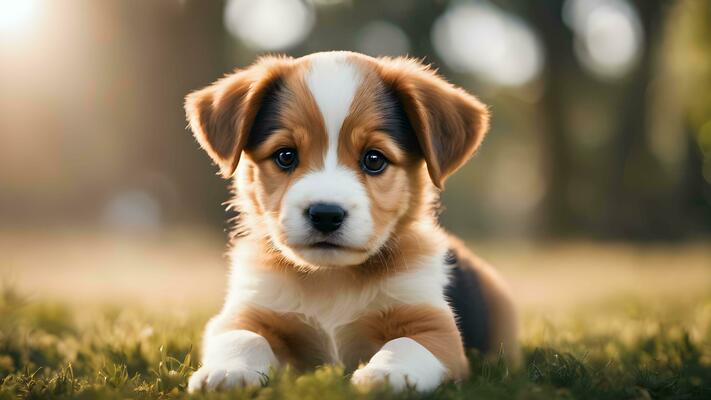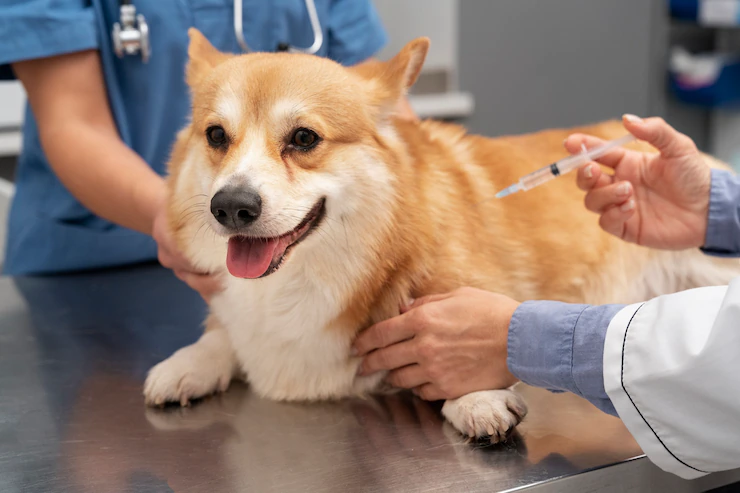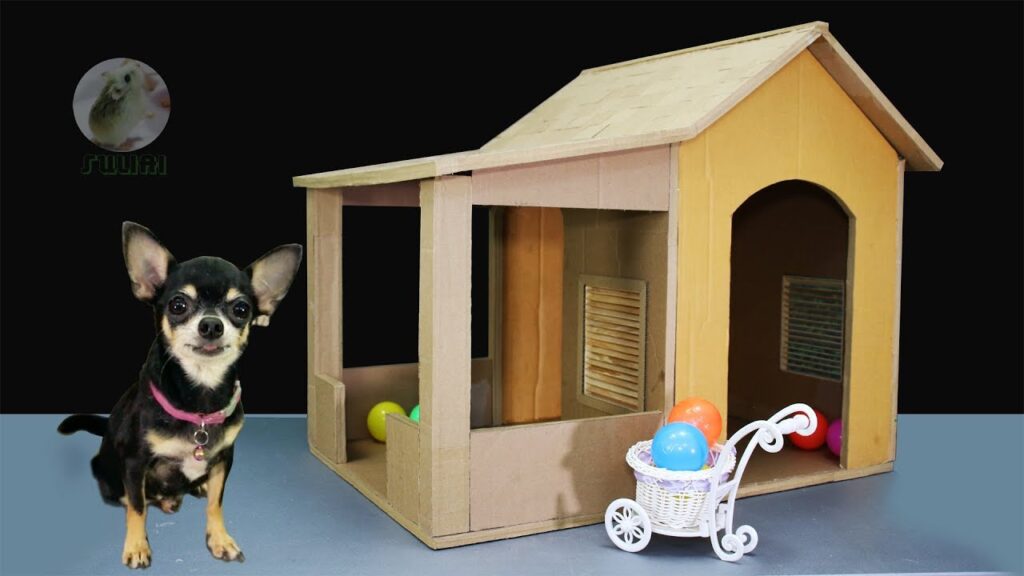Bringing home my baby dog was one of the most heartwarming experiences of my life. From the first wag of his tail to our countless play sessions, he has filled my days with joy and laughter if you consider adding a baby dog to your family.
Welcoming a Baby:Czziykpdt-Q= Dog into your home is an exciting adventure filled with joy and companionship. These adorable pups bring boundless energy and unconditional love, making them the perfect addition to any family.
The fun world of baby dogs! We’ll share sweet stories, helpful tips, and everything you need to know to help your puppy grow happy and healthy. Don’t miss out on the joy of having your own baby dog.
What Is A Baby:Czziykpdt-Q= Dog?
A baby dog, often called a puppy, is a young canine that is typically under one year old. During this stage, puppies are known for their playful and curious nature, exploring their surroundings and learning about the world around them.

Baby dogs require special care,baby:czziykpdt-q= dog , training, and regular veterinary check-ups, to ensure they grow into healthy and well-adjusted adult dogs.These adorable little companions thrive on love and attention, forming strong bonds with their human families.
Their early experiences play a crucial role in shaping their behavior and personality, making it essential to provide a nurturing environment. With the right guidance, a baby dog can grow into a loyal and loving friend, baby:czziykpdt-q= dog your home for many years.
What Age Is Considered A Baby:Czziykpdt-Q= Dog ?
- Neonatal Stage (0-2 weeks): Newborn puppies completely depend on their mother for warmth and nourishment.
- Transitional Stage (2-4 weeks): Puppies open their eyes and ears, becoming more aware of their surroundings.
- Socialization Stage (4-12 weeks): During this critical period, puppies should be exposed to various people, animals, and environments to build confidence and social skills.
- Juvenile Stage (3-6 months): Puppies continue to grow and become more active. This is also when they begin teething and require proper training and socialization.
- Adolescence (6-12 months): During this stage, puppies may display more independence and sometimes challenging behaviors as they approach adulthood.
READ MORE: Pikachu: DZZQ_BS41JC = Pokémon – Everything You Need to Know!
How Do I Choose The Right Baby Dog For My Family?
Breed Compatibility:
Research different dog breeds to find one that fits your family’s lifestyle. Consider factors like size, energy level, grooming needs, and temperament. Some breeds are more suitable for active families, while others may thrive in quiet environments.
Activity Level:
Assess your family’s activity level. A high-energy breed may be a great fit if you enjoy outdoor activities and exercise. Conversely, if you prefer a more relaxed lifestyle, look for a breed that requires less exercise.
Age And Size:
Consider the size of your baby:czziykpdt-q= dog prefer a small, medium, or large dog. Additionally, consider whether you want a puppy (which requires more training and socialization) or an older dog that may already have some training and social skills.
Temperament And Personality:
Spend time interacting with different puppies to gauge their personalities. Look for a puppy whose temperament aligns with your family’s dynamics, such as being friendly, playful, or calm.
Allergies And Sensitivities:
If anyone in your family has allergies, baby:czziykpdt-q= dog breeds less likely to trigger allergic reactions.
What Vaccinations Do Baby Dogs Need?
Puppies need several essential vaccinations to protect them from serious diseases as they grow. The DHPP vaccine is a baby:czziykpdt-q= dog s against distemper, hepatitis, parainfluenza, and parvovirus, all of which can have severe health consequences.

The rabies vaccine is crucial for preventing this deadly virus, which can be transmitted to humans and is often mandated by law. Other important vaccinations include the Bordetella vaccine, which protects against kennel cough.
leptospirosis for a bacterial infection affecting the liver and kidneys, and the Lyme disease vaccine for areas where ticks are common. In some regions, a canine influenza vaccine may also be recommended due to the risk of outbreaks.
How Much Sleep Does A Baby Dog Require?
A baby dog, or puppy, requires a significant amount of sleep to support its rapid growth and development. Generally, puppies sleep between 18 to 20 hours a day. This sleep is crucial for their physical health, mental development, and overall well-being.
In their early weeks, puppies tend to baby:czziykpdt-q= dog followed by long periods of deep sleep. As they grow and become more active, their sleep patterns may change slightly, but they will still need plenty of rest to recharge.
Providing a comfortable and quiet sleeping area is essential, as it helps them feel safe and secure while they rest. Ensuring that your puppy gets enough sleep will contribute to their health, energy levels, and ability to learn and socialize effectively.
What Toys Are Best For Baby Dogs?
Chew Toys:
Durable chew toys are crucial for puppies, especially during teething. Look for toys made from safe, non-toxic materials that can withstand strong bites. Popular options include rubber toys, rope toys, and nylon bones.
Interactive Toys:
Toys that engage a puppy’s mind are baby:czziykpdt-q= dog . Puzzle toys that dispense treats when solved can keep your puppy occupied and challenge their problem-solving skills.
Fetch Toys:
Soft balls and frisbees designed for puppies are great for interactive play and exercise. They promote physical activity and help strengthen the bond between you and your puppy.
Squeaky Toys:
Puppies love toys that squeak, baby:czziykpdt-q= dog encourages play. Just ensure they are durable enough to withstand chewing without breaking apart.
Stuffed Toys:
Soft stuffed animals can comfort puppies, especially when adjusting to their new home. Look for toys made specifically for dogs, designed to be more durable than regular stuffed animals.
How Can I Help My Baby Dog Adjust To A New Home?

- Establish a Safe Space: Designate a quiet area where your puppy can retreat when overwhelmed. Use a crate or a cozy bed with familiar blankets and toys to create a safe haven.
- Maintain a Routine: Puppies baby:czziykpdt-q= dog a daily routine that includes feeding, potty breaks, playtime, and training. This predictability helps them feel secure and understand what to expect.
- Gradual Introduction: Introduce your puppy to different areas of your home and gradually expose it to family members and pets. Allow it to explore at its own pace to prevent overwhelming it.
- Positive Reinforcement: Use treats, praise, and affection to reward your puppy for exploring and behaving positively in its new environment. This helps build confidence and encourages the puppy to associate its new home with positive experiences.
FAQs:
How Can I Tell If My Baby Dog Is Healthy?
To determine if your baby dog is healthy, look for signs such as a shiny coat, bright eyes, normal energy levels, regular bathroom habits, and a healthy appetite. Regular veterinary check-ups are also essential for monitoring their health.
What Are The Common Behavioral Traits Of Baby Dogs?
Baby dogs often exhibit playful, baby:czziykpdt-q= dog mischievous behavior. They may also experience teething, which can lead to chewing on various objects and require guidance on acceptable behaviors.
How Can I Socialize My Baby Dog Safely?
Socializing your baby dog safely involves exposing it to different environments, people, and other animals in controlled settings. Baby:czziykpdt-q= dog playdates are great options to encourage positive interactions.
What Are The Signs Of Anxiety In Baby Dogs?
Excessive barking, whining, destructive behavior, hiding, loss of appetite, or trembling can be signs of anxiety in baby dogs. Recognizing these signs early can help you address their needs effectively.
How Important Is Playtime For Baby Dogs?
Playtime is crucial for baby dogs as it helps with physical development, mental stimulation, and socialization. Engaging in play activities also strengthens the bond between you and your puppy.
Conclusion:
baby:czziykpdt-q= dog is a rewarding journey that requires attention, love, and commitment. Understanding their unique needs, from proper nutrition and health care to training and socialization, can help ensure your puppy grows into a happy and well-adjusted adult dog. Each stage of their development presents opportunities for bonding and learning, making it essential to be patient and attentive.
baby:czziykpdt-q= dog and cherish the countless moments of companionship they bring into your life. Your dedication will lay the foundation for a lifelong friendship with your furry friend.
ALSO READ:
